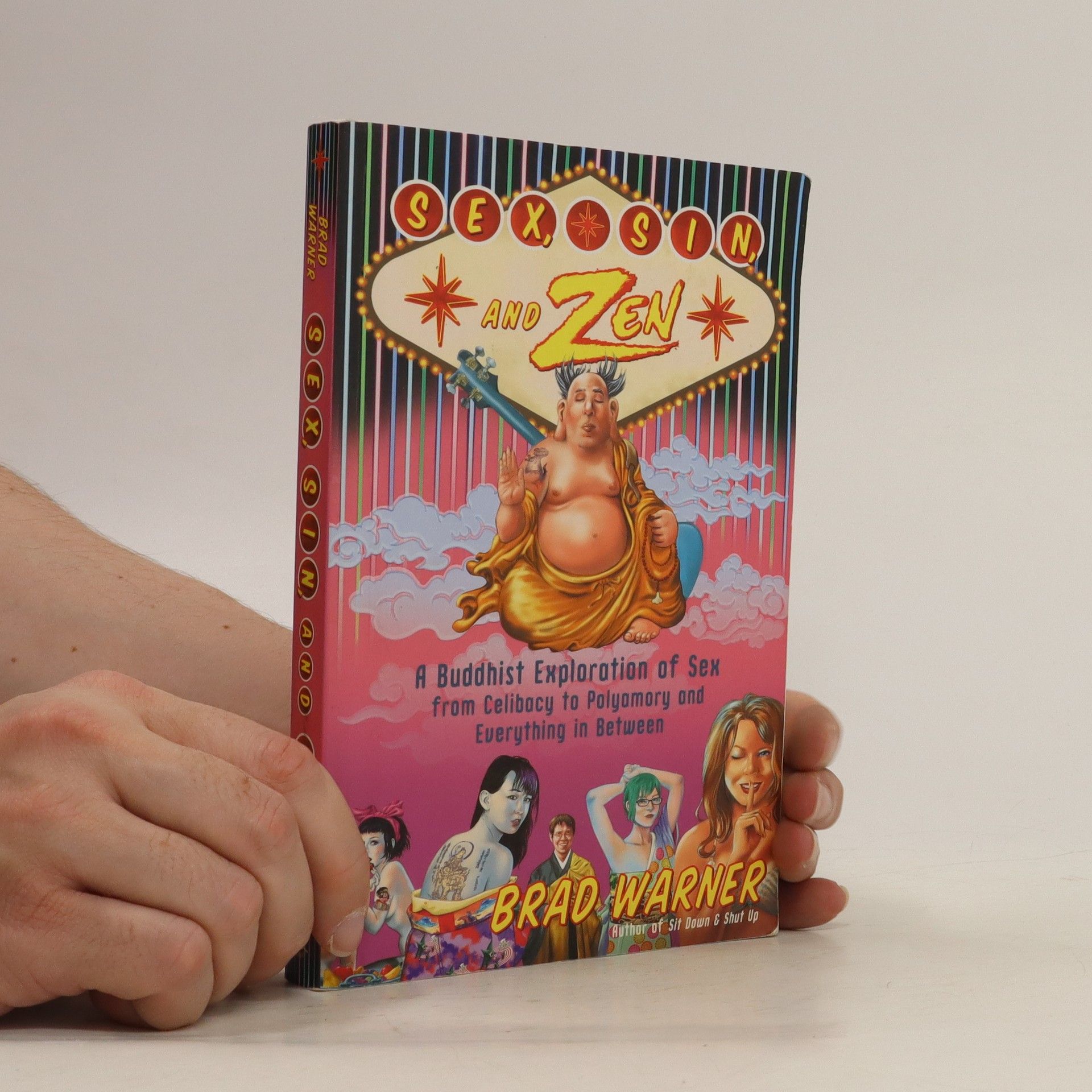A reader-friendly guide to Zen Buddhist ethics for modern timesIn the West, Zen Buddhism has a reputation for paradoxes that defy logic. In particular, the Buddhist concept of nonduality — the realization that everything in the universe forms a single, integrated whole — is especially difficult to grasp. In The Other Side of Nothing , Zen teacher Brad Warner untangles the mystery and explains nonduality in plain English. To Warner, this is not just a philosophical nonduality forms the bedrock of Zen ethics, and once we comprehend it, many of the perplexing aspects of Zen suddenly make sense.Drawing on decades of Zen practice, he traces the interlocking relationship between Zen metaphysics and ethics, showing how a true understanding of reality — and the ultimate unity of all things — instills in us a sense of responsibility for the welfare of all beings. When we realize that our feeling of separateness from others is illusory, we have no desire to harm any creature. Warner ultimately presents an expansive overview of the Zen ethos that will give beginners and experts alike a deeper understanding of one of the world’s enduring spiritual traditions.
Brad Warner Livres
L'œuvre de Brad Warner mélange de manière unique la philosophie du bouddhisme Zen avec des éléments du hardcore punk et de la culture pop japonaise. En tant que maître Zen ordonné, musicien et admirateur de films de monstres, il apporte une approche non conventionnelle et directe à sa pratique spirituelle et à son écriture. Ses textes explorent la vérité sur la réalité à travers une lentille intransigeante, reflétant un profond intérêt pour l'authenticité et le rejet de la superficialité. La perspective distinctive de Warner offre aux lecteurs un engagement rafraîchissant avec des concepts philosophiques profonds.






In Sit Down and Shut Up, Brad Warner tackles one of the great works of Zen literature, the Shobogenzo by 13th-century Zen master Dogen. Illuminating Dogen’s enigmatic teachings in plain language, Warner intertwines sharp philosophical musings on sex, evil, anger, meditation, enlightenment, death, God, sin, and happiness with an exploration of the power and pain of the punk rock ethos. Riffing on his triumphant return to Ohio for a reunion concert of Akron punk bands, Brad uncovers the real heart of Zen, in teachings and stories with a sharp smack of truth.
Hardcore Zen
- 224pages
- 8 heures de lecture
This is not your typical Zen book. Brad Warner, a young punk who grew up to be a Zen master, spares no one. This bold new approach to the "Why?" of Zen Buddhism is as strongly grounded in the tradition of Zen as it is utterly revolutionary. Warner's voice is hilarious, and he calls on the wisdom of everyone from punk and pop culture icons to the Buddha himself to make sure his points come through loud and clear. As it prods readers to question everything, Hardcore Zen is both an approach and a departure, leaving behind the soft and lyrical for the gritty and stark perspective of a new generation.The subtitle says it all: there has never been a book like this.
With his one-of-a kind blend of autobiography, pop culture, and plainspoken Buddhism, Brad Warner explores an A-to-Z of sexual topics — from masturbation to dating, gender identity to pornography. In addition to approaching sexuality from a Buddhist perspective, he looks at Buddhism — emptiness, compassion, karma — from a sexual vantage. Throughout, he stares down the tough Can prostitution be a right livelihood? Can a good spiritual master also be really, really bad? And ultimately, what's love got to do with any of it? While no puritan when it comes to non-vanilla sexuality, Warner offers a conscious approach to sexual ethics and intimacy — real-world wisdom for our times.
Don't be a Jerk and Other Practical Advice from Dogen, Japan's Greatest Zen Master
- 306pages
- 11 heures de lecture
The Shōbōgenzō (The Treasury of the True Dharma Eye) is a revered eight-hundred-year-old Zen Buddhism classic written by the Japanese monk Eihei Dōgen. Despite the timeless wisdom of his teachings, many consider the book difficult to understand and daunting to read. In Don’t Be a Jerk, Zen priest and bestselling author Brad Warner, through accessible paraphrasing and incisive commentary, applies Dōgen’s teachings to modern times. While entertaining and sometimes irreverent, Warner is also an astute scholar who sees in Dōgen very modern psychological concepts, as well as insights on such topics as feminism and reincarnation. Warner even shows that Dōgen offered a “Middle Way” in the currently raging debate between science and religion. For curious readers worried that Dōgen’s teachings are too philosophically opaque, Don’t Be a Jerk is hilarious, understandable, and wise.
Für alle, die unerschrocken wie der Buddha selbst sind. Wie hilft ein echter Zen-Meister - nicht die milde lächelnden Cartoonfiguren, sondern ein echter Meister - anderen Menschen, wenn er mit seinem eigenen Schmerz beschäftigt ist? Wie meditiert er, wenn seine Welt auseinanderbricht? Ist seine Meditation in diesen Momenten etwas Wertvolles oder nur eine Flucht? Brad Warner schildert in schonungsloser Offenheit ein Jahr seines Lebens, in dem seine Mutter und seine Großmutter starben, er seinen Traumjob verlor und seine Ehe scheiterte. Gleichzeitig beschreibt er gewohnt witzig und wortgewandt, wie die Lehren Buddhas ihm halfen, mit all diesen Ereignissen fertigzuwerden und auch ein mildes Nicht-Eso-Lächeln zu entwickeln.
In Hardcore Zen erzählt Brad Warner – ehemaliger Bassist einer Punkband, Trashfilm-Fan und Zen-Mönch – mit viel Witz und Direktheit von seinem ungewöhnlichen Lebensweg zur buddhistischen Praxis. Ohne spirituelles Pathos, aber mit tiefer Einsicht beschreibt er, wie ihn nicht etwa heilige Texte oder fernöstliche Gurus, sondern das chaotische Leben selbst zum Zen führte. Sein Stil ist rau, ungeschönt und gleichzeitig erfrischend ehrlich – Zen ohne Räucherstäbchen und Lotusblüten, dafür mit der klaren Botschaft: Erleuchtung ist kein Ziel, sondern ein ständiger Prozess mitten im ganz normalen Wahnsinn des Alltags. Warner bricht mit esoterischen Klischees und zeigt, dass Zen keine Flucht vor der Welt bedeutet, sondern eine radikale Konfrontation mit der eigenen Realität. Hardcore Zen ist kein klassischer Ratgeber, sondern ein autobiografisches Manifest für alle, die sich nach echter Selbsterkenntnis sehnen – mit Humor, Selbstironie und dem Mut, unbequeme Wahrheiten auszusprechen. Dieses Buch richtet sich an Suchende und Skeptiker gleichermaßen – und an alle, die sich zwischen Rebellion und Spiritualität wiederfinden.
